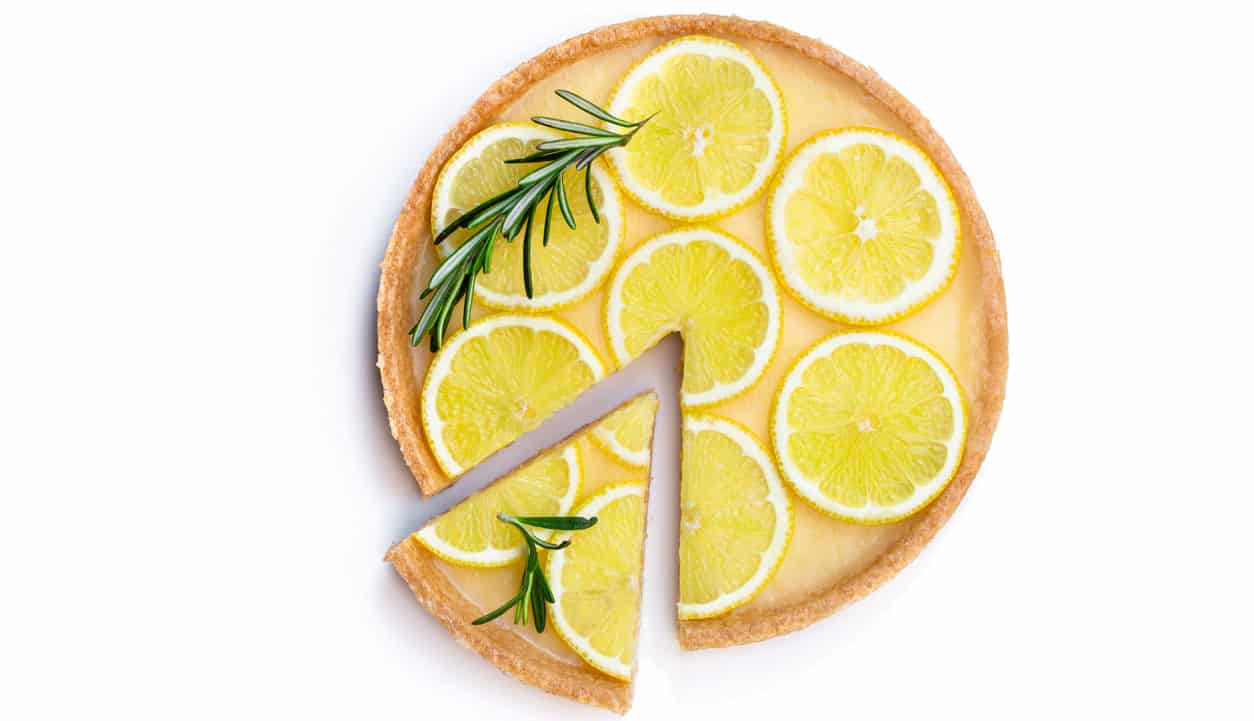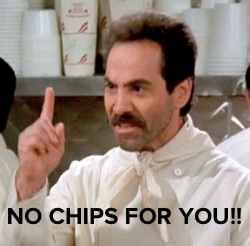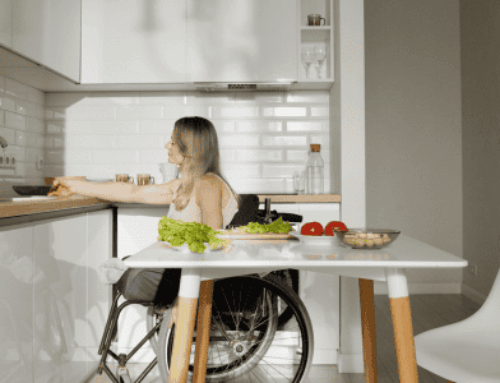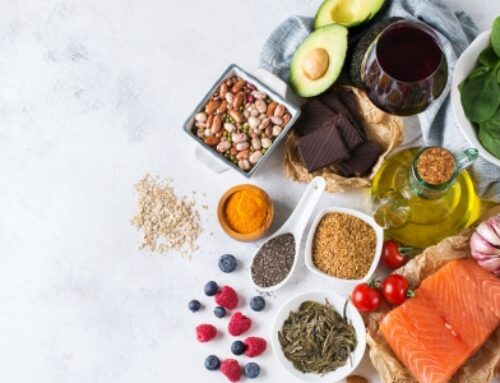
You’ve been to the doctor, had a blood test and found out that you have high cholesterol! (Oh no… that’s not what you were expecting).
You’ve heard a bit about cholesterol. You know there’s a good and bad cholesterol and you know that it’s found in animal products. But you’re not sure where you’re going wrong with your diet or how to bring your cholesterol down again.
So the doctor recommends “go and speak to a dietitian.”
“GREAT!” you say to yourself, sarcastically. “They are going to tell me to cut out cheese (NOOO!) and swap to ‘heart smart’ milk. All dietitians are fat haters right?”.
 But before your mind runs away with you, and you burn the dietitian referral, here is what a dietitian is much more likely to do.
But before your mind runs away with you, and you burn the dietitian referral, here is what a dietitian is much more likely to do.
1. Look at the types of cholesterol
Sometimes when we get a blood test back and we’re told that cholesterol is up, we assume that all of it is up and all of it needs to come down. That’s only half true. There is usually a few measures of cholesterol on your test and each of these mean something different for a dietitian.
Total cholesterol. As the name suggests, this includes all your cholesterol types, healthy and unhealthy. While we want this measure to be below 5.5 mmol, on its own it doesn’t tell us what’s going on. The dietitian will want to know whether your cholesterol is up because of unhealthy cholesterol or healthy cholesterol.
HDL. The best way to remember which is which, is by thinking ‘H’ is for Healthy. HDL cholesterol is protective for your heart. If HDL is low, the dietitian is going to focus on some parts of the diet like increasing healthy fats.
LDL. LDL cholesterol is the unhealthier types and if LDL is high then a dietitian might target other nutrients like soluble fibre and trans fats.
So, even though you have ‘high cholesterol’, it could mean a range of different things nutritionally.
2. Get to know you and your life
You know yourself better than anyone else. Certainly better than the dietitian you are meeting for the first time. And while dietitians might have studied and trained in nutrition and dietetics, we can’t be very much help to you without getting to know you, your circumstances and your challenges. Your dietitian will ask about family, home, work, sleep, energy, shopping, cooking and what foods you do and don’t eat. That’s probably what I enjoy most about working with people. Talking about what they have tried in the past, the barriers they face and then breaking those barriers down.
A lot of people presume that they are doing something wrong with food, but that’s not necessarily the case. I often spend a First Consultation getting to know someone and reassuring them that they are on the right track. There is often things that we can tweak or adjust, but that is usually because there are barriers and habits that are getting in the way of change. A dietitian wants to work with you, to make healthy eating and cholesterol management simple and easy!
3. Talk about whole foods
In nutrition we tend to focus on (and fight about) macronutrients; carbohydrates, proteins and fats.
But what the research consistently indicates is that overall diet quality is more important than individual nutrients. And the most effective way to improve your overall diet quality is to increase the amount of whole foods you eat, particularly fruits, vegetables, whole grains and legumes.
There is no silver bullet when it comes to reducing cholesterol, but whole foods come pretty close. Fruit, veg, whole grains and legumes are super high in fibre which play an important role in cholesterol management. Soluble fibre, in particular, actively lowers cholesterol by binding to bile in the gut and carrying it out in your poo. Why is that good? Well, bile is created from cholesterol in the liver and is excreted into the gut to digest fats. If soluble fibre is carrying it out in your poo then your liver has to keep making more, which means that there is more cholesterol being used as bile and less floating around in your blood! Nice work, soluble fibre.
So, your dietitian might help you identify which whole foods are missing and work with you to make some easy adjustments.
4. Talk about fats
There is a lot of research around the impact of fat on cholesterol. Some of it is conflicting but what is most important to remember is balance and moderation. It’s good for your health, and your enjoyment of food, to include fats in your meals. But fats are very high in energy, so too much fat can prevent weight loss or cause weight gain.
Trans fats
Trans fats are strongly linked to an increase in total cholesterol, particularly LDL (unhealthy) cholesterol as well as decreases HDL (healthy) cholesterol. In Australia, we are quite lucky to have low amounts of trans fats in our food supply, but they can still be found in processed foods, deep fried foods, donuts, pastries and cakes. Your dietitian can help you identify foods that might be hiding trans fats and suggest ways to avoid them.
Saturated fats
While there is some debate over the full impact of saturated fat on cardiovascular disease, the majority of research indicates that saturated fats increase our total and LDL (unhealthy) cholesterol. As a general rule of thumb, saturated fats are animal fats. They are found on cuts of meat, in milk and cheese and in foods made with butter and ghee. Your dietitian might help you consider ways to reduce large amounts of saturated fats and make easy food swaps.
Unsaturated fats
There are two types of unsaturated fats; mono-unsaturated and poly-unsaturated. Both of these fats have been shown to improve blood cholesterol and reduce the risk of cardiovascular disease. Unsaturated fats are plant based fats and are found in nuts, seeds, nut and seed oils and avocado. Your dietitian can help you to include sources of unsaturated fats in the right volume for you.
Omega 3 fats
Omega-3 fats are a particular type of polyunsaturated fat. There is consistent research on the benefits of omega-3 fats in raising HDL (healthy) cholesterol and reducing the risk of heart disease. The richest sources of omega-3 fats is fish like salmon, mackerel, tuna, trout and sardines, but they can also be found in seeds like flax and chia. Your dietitian might work with you to include some easy sources of omega-3.
Then 5. Talk about plant stanols and sterols
Plant stanols and sterols are natural chemicals found in different fruits and vegetables that help to reduce the absorption of cholesterol in the gut. This helps to lower your blood cholesterol. There are many products like milk, yoghurt, margarine and cereals which are fortified with stanols and sterols to make them ‘cholesterol lowering’ products. These can be useful in lowering cholesterol if we are having enough. Some of these products can be expensive and consuming enough can be tricky.
The research indicates that we need to have 1.5 -3 grams of plant stanols and sterols to have a significant effect on cholesterol. Your dietitian might help you figure out how to reach this load and what products and tools are most cost-effective for you.
So if you have received a blood test result with high cholesterol it doesn’t mean you are going to be sent to the ‘food police’. Your dietitian wants to get to know you and what’s important in your life. We want to make any changes as simple and easy as possible. We’re on your team.
If you’d like further help with your nutrition please click below:



